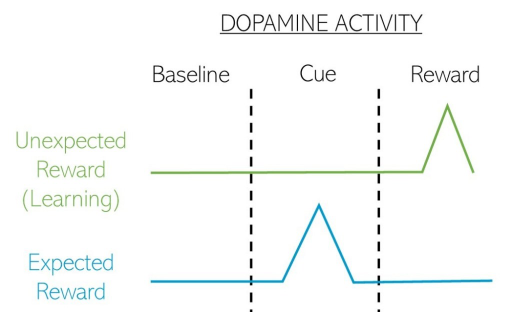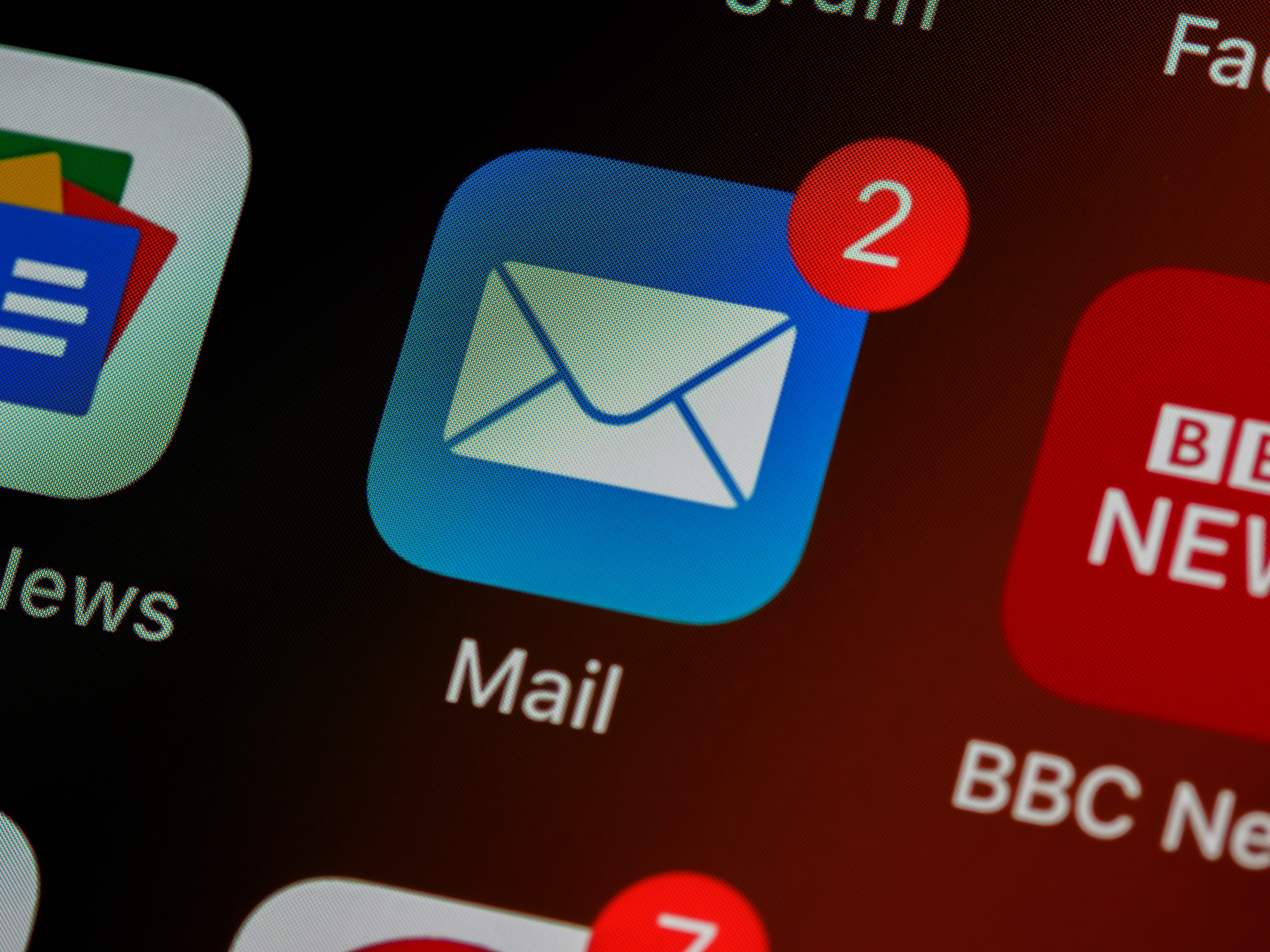What are distractions?
Distractions are simply things that take us away from what we want to be doing.
Despite such a simple definition, distractions are not so simple to avoid in the modern world.
What are some examples of distractions? On any normal day, you can be interrupted by a coworker, a buzz from an email, an unwanted phone call, or an Instagram notification telling you about all the likes your last post got.
Why is it important to avoid distractions?
These sound relatively trivial, but these distractions don’t just stop at taking up your time in the moment when they distract you. There are two further issues associated with distractions:
1 | They continue to degrade your cognitive ability long after you are distracted. Let’s say a coworker comes to you to have a chat. Afterwards when you try to get back to your work some of your attention remains stuck with the topic of the chat — a concept called ‘attention residue’. The more distractions you experience, the greater the reduction in your cognitive capacity and performance that you can use for whatever you want to focus on in the present. One study found that after a big distraction it takes an average of 23 minutes and 15 seconds to get back to the task you were meant to be focusing on.
You have to completely shift your thinking, it takes you a while to get into it and it takes you a while to get back and remember where you were. — Gloria Mark
2 | Due to how fast we switch contexts on our phones, our brains are struggling to leave that environment for the much slower pace of real life. We end up forming bad habits which reduce our attention span, as our brains are actually looking for a distraction. A study of 7102 adolescents found a strong association between the inability to focus and spending over 60 minutes on a smartphone per day (based on a test for ADHD). Adults can likely cope with slightly more than this although this should be worrying as this threshold is considerably lower than the average person’s smartphone use of 2 hours and 55 minutes.
*Technically distractions can also develop internally but that’s a whole different can of worms that we think deserves a separate topic (we’ll tackle that in Ingredient #4 — Self–Awareness).
Why do I get distracted so easily?
These days every website and every app wants as much of your attention as possible. Ever since smartphones became mainstream in 2010 technology has become a bigger part of our lives — bringing with it more competition for our attention. The effect of this is so severe that even when not using it, if your phone is in the same room as you it can drastically reduce your cognitive ability.
Limiting distracting stimuli and their effects in our modern environment is a real challenge. Sometimes it’s almost impossible to avoid being distracted without cutting ourselves off completely (e.g. with highly addictive apps like TikTok).
How do you avoid distractions?
Nonetheless here are some easy, actionable strategies that we can use to make our smartphones, laptop and work life less distracting:
1. Be more organised
You can’t be distracted if you don’t know what you’re being distracted from.
So if you haven’t already, before you continue reading this, go have a quick read of Focuspedia Ingredient #1 (Good Organisation) to brush up on your organisation skills. One incredibly useful tip is to schedule in when you want to be distracted (e.g. I only let myself scroll through twitter at 5pm on the train back from work).
2. Make your phone less distracting
There are countless opportunities to get distracted on your phone and to minimize the number of times you get distracted you really have to throw the kitchen sink at it.
- Turn off all notifications on your lock screen.
- Turn off notifications for the apps you don’t need notifying you instantly (e.g. ask yourself: do you really need Messenger interrupting you while you’re focused or is it ok to respond afterwards?)
- While you’re at it, delete all distracting apps that you can live without. Maybe you could delete Instagram and just use it on your laptop? At Rocket, we completely understand that deleting ALL social media isn’t a realistic option for digital natives like us who have social lives dependent on our online presence, but you would be surprised with what you can live without.
- If can’t delete them, make distracting apps take longer to get to by moving them to a screen far away from the main home screen of your phone. This can help shake up habits and make the prospect of opening them slightly less appealing to your brain.
- Try to use search to open distracting apps rather than clicking on their icon. Typing is more of a conscious action than simply tapping an app icon, so you’re less likely to be acting out of habit.
- It probably goes without saying that it’s a good idea to block any distracting websites.
- Another decent idea is to set up app time limits. Keep in mind it’s often pretty easy to get around these so they’re definitely not a standalone solution.
- Learn to use Do Not Disturb frequently! The little ding or even the bzzz of a silenced phone can and often does completely kill your focus. If you need to occasionally have notifications turned on, then the easiest way to control them is by toggling this simple setting. If you’re not using Rocket, one way to remember to turn it on is by using this habit stacking technique: after you look at your to-do list, turn your phone on Do Not Disturb.
- One more thing you can do is make your phone less visually appealing. You can turn on a setting that makes your phone screen go Greyscale which is meant to cut down the times you pick up your phone by up to 35%. You could even try an ugly screensaver that might stop you from wanting to pick up your phone so much. It even so happens that if you schedule Do Not Disturb daily on iPhones it turns your lock screen black when the setting is on.
3. Make your computer less distracting
We won’t go into too much detail here because it’s much of the same as above.
- As with your phone, it’s a good idea to turn off notifications & use Do Not Disturb as much as possible.
- Block distracting websites and use ad-blockers.
- Use social media feed blockers (such as News Feed Eradicator or DF Tube).
4. Be strategic about your dopamine
First up, here’s a quick, very basic, scientific view of dopamine. Dopamine is an essential neurochemical released by the brain after an unexpected reward, and it makes us feel good momentarily. The brain also produces it when it expects a reward.

While dopamine is great at satisfying you momentarily it does not leave you fulfilled. For context— recreational stimulant drugs like cocaine directly increase dopamine activity. Given how good our phones are at getting our brains to produce dopamine, you can see why some people call social media a drug and why we should at the very least be wary of how our phones are influencing our dopamine levels.
i. Don’t use your phone first thing in the morning.
When you start your day by mindlessly scrolling through your social media or email, your brain releases a lot of dopamine. This seemingly harmless behaviour creates a higher baseline dopamine level for the day, essentially telling your brain to keep checking social media and email at the slightest hint of boredom. Your brain knows this is a sure way to quickly and easily feel good (especially compared to work, which is often challenging and less stimulating). Avoid using any high dopamine apps on your phone for the first 60 minutes after waking up, instead, we suggest starting the day with some of the following deeply satisfying activities:
- Have a glass of water / breakfast
- Exercise / stretch / go for a walk
- Sit outside and get some fresh air
- Read a book
- Listen to a podcast
- Meditate
- Write down some ideas you’ve had
- Have a shower
- Chat to your partner / family / friend
- Go straight into ~30 of focused work
ii. Dopamine detox
Every now and then getting away from all the high dopamine things ingrained in our modern high tech lives is a nice ‘reset’, even though. Best to let the master, Dr. Greenfield, explain it himself:
“A digital detox means that you are temporarily ceasing the digital drugs, for a period of time. In and of itself, a digital detox doesn’t really do anything except remind you what the possibility might be without that drug,” he says. “If you do it long enough, it can change the neurobiological process a bit, but it has to be longer than a few hours or day, though. We’re talking weeks or months to see real changes.”
While this can be a nice thing to do over a holiday, the more sustainable approach is to think about implementing all the little ways of reducing dopamine that we’ve already mentioned above, as a consistent kind of ‘micro-detox’.
5. Avoid distractions in your workplace
i. Do your coworkers always interrupt you at bad times?
It’s not really their fault if they can’t tell you’re focusing and you would like to keep undisturbed. Sometimes a simple cue like wearing headphones can be a sign for people to avoid you.
You could signal your intentions more literally by placing a sign on your desk saying something simple like:
I’m focused right now. Please don’t interrupt me unless it’s urgent — send me an email and let’s chat after!
In the virtual world, you can and should set up an automatic text message reply to silenced calls. Here’s a basic example:
Hey, sorry I can’t take your call right now, I’m really busy working on something. Please leave me a text message and I’ll get back to you as soon as I can. Really appreciate it!
ii. Communicate asynchronously wherever possible
Synchronous communication (when 2 or more people are talking with each other at the same time) is only really necessary in very limited circumstances. You only really need to set up meetings when there needs to be a 2-way discussion and it needs to happen urgently.
When meetings are set up unnecessarily they are essentially a distraction, and as with all other distractions, it’s best not to spread them throughout the day, accumulating attention residue and reducing cognitive performance.
If you need to share something but there isn’t much discussion involved, send it as an email or even a recording. That way anyone you send it to can read it/watch it in their own time (maybe even at 1.75x speed).
iii. Is your workplace noisy?
Whether you’re working from a noise-polluted home or bustling office, sometimes noise can be a real distraction. Noise-cancelling headphones or earphones can be a nice way to cut it out.
We don’t recommend you rely on these for long periods of time or against any manufacturers’ advice, as you could potentially end up with hearing damage.
Coloured noises (brown, white and pink) are great at cutting out background noise even further. Listen to each and see which one you prefer.
That’s quite a comprehensive list of strategies, and it’s a lot of information to take in. If you’ve made it this far, well done! Put a note in your calendar to come back here in 2 days from now to check how well you’re implementing these strategies.






